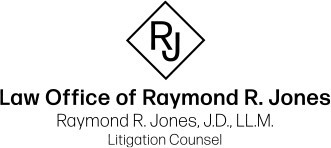Get Representation From an Experienced Employment Law Attorney
At the Law Office of Raymond R. Jones, we are dedicated to protecting the rights of employees and providing comprehensive legal representation in a variety of employment law matters. Our experienced attorneys specialize in the following key areas:

Wrongful Termination
Wrongful termination occurs when an employer unlawfully fires an employee in violation of state or federal laws, employment contracts, or public policy. If you believe you have been wrongfully terminated from your job, our skilled employment law attorneys can assess the circumstances of your case, evaluate your legal options, and pursue justice on your behalf. We will work tirelessly to hold employers accountable for their actions and seek remedies such as reinstatement, back pay, and compensation for damages.
Workplace Rights
Every employee has rights in the workplace, including the right to a safe and non-discriminatory work environment, fair wages, and protection from harassment and retaliation. Our knowledgeable attorneys are well-versed in employment laws and regulations and can provide guidance and advocacy to help you assert your rights effectively. Whether you are facing discrimination, harassment, retaliation, or other violations of your workplace rights, we are here to fight for you and ensure that your voice is heard.
If you are dealing with issues related to wrongful termination, workplace rights violations, or other employment law matters, don’t face the legal system alone. Contact the Law Office of Raymond R. Jones today to schedule a consultation with an experienced employment law attorney. We are committed to protecting your rights and advocating for fair treatment in the workplace.
